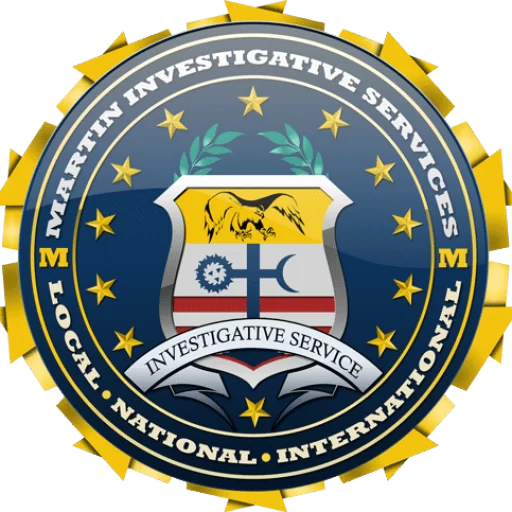
Missing Child: Comprehensive Search Tools & Resources
Did you know that of the over 100,000 individuals who go missing each year, approximately 80 percent are children? People who have vanished for an extended period, often unexplained, are considered missing.
According to the National Center for Missing and Exploited Children (NCMEC), in 2019, there were 424,066 entries for missing children in the National Cecile. Of those, approximately 90% were classified as endangered runaways, and 4% were family abductions. The NCMEC also reports that, on average, about 800,000 children are reported missing each year in the United States, which equates to roughly 2,000 per day.
This guide’s objective is to advise on what to do if a child goes missing. Included are recommendations from the top law enforcement agencies on what to do in each case of a missing child investigation.
Call (800) 577-1080


Voluntary Missing
This comprises teenagers and pre-teens who connect too strongly with their peers, allowing peer influence to govern their thinking. They may crave independence and despise family norms. Despite being the most common type of missing child case, many runaways do not notify their families or social workers that they are safe.
Parental Abductions
A parent may abduct their child because they are afraid of losing custody. This is risky because it creates a situation in which one or both parents violate a court order.
Stranger kidnapping
Despite accounting for less than 1% of all cases of missing kids, stranger kidnappings attract the most press coverage because of the dramatic aspect of the incidents.
Non-Family Kidnapping
Nonfamily abduction affects around 200 kids in the United States each year, and these cases can involve a family, nanny, friend, or neighbor.
Children who have been lost, injured or missing for unknown reasons.
This category includes kids who cannot locate their families or vice versa, children involved in accidents and never located by parents or caregivers, and those who go missing after natural calamities. It also applies to those who vanish because of domestic violence in their family. Typically, the details in these cases are insufficient to identify whether the youngster was abducted, injured in an accident, or deliberately left home. If the child is not located within 72 hours after going missing, they have a minimal chance of survival.
In all cases, missing child cases generally involve wrongdoing and require swift action to ensure the child’s safety. Children who leave home freely risk becoming entangled in illegal behavior or exploitation, such as trafficking, child pornography, or working with pedophile enablers. According to studies, 85% of the victimized children remain missing when exploitation occurs.
What to do in the case of a missing child
Every missing kid case is treated as a possible crime against the individual, and the initial 24 hours are critical. Contrary to popular belief, you do not have to wait 24 hours before reporting a child’s absence. The first few hours are crucial.
Get in touch with anyone familiar with the person.
If you are close with your child, you no doubt know who they spend time with; inquire about the child’s whereabouts from these people. Sometimes the child could be out with friends, and getting such information may prevent you from flipping out.
Some of the people to contact include:
● Members of their family
● Friends
● Classmates
● Neighbors
Talk to each of them to see if they know where your child is. If they do not know, find out when they were last in touch or where they last saw the individual. Record everything they tell you and move on to the next step.
Call 911
A preliminary inquiry is required in a missing child case to make sense of the facts and structure the investigation. Call 911 so that a patrol officer can be assigned as soon as possible to perform the initial investigation and take their report.
When the dispatcher answers your call, they will ask for the missing child’s name and their physical description and attire. They’ll pass this information on to the officer, who may be able to locate the youngster en route.
Patrol officers get involved in a missing child inquiry for various reasons. The uniformed officer is the one who is most likely to be on duty around the clock, seven days a week and is also the one who is more familiar with the community.
The officer directly interacts with the family, not only because they need support at this time but also because gathering information is crucial for investigative reasons.
Provide as much information as possible.
When the patrol officer arrives on the scene, they will question both of the child’s parents (usually separately) to ascertain whether the youngster has voluntarily left home or been kidnapped by one of the parents or a stranger. The police will almost definitely inquire about the child’s legal custody status. This is not the time to play hooky with information. Provide details such as:
● Full name
● Birthdate
● Physical description photo
● The clothes they were wearing
● Scars, piercings, braces, birthmarks, scars, and other distinguishing marks
● Who last saw the child?
● Details of the child’s friends, including their addresses. Ensure they get the child’s name, nickname, race, gender, and birthdate right for searching in the National Crime Information Center Missing Persons File, aka NCICMPF.
● Everyone present at the time: The uniformed officer will also collect the names and contact information of people at the scene and those assisting with the search.
The preliminary investigation will help the patrol officer determine if there are any unusual circumstances involved.
Immediate action is necessary under unusual circumstances. These include:
● Under unusual circumstances, a swift response is required. These include:
● The missing child is under the age of 13 years old.
● The missing child is considered outside the safe zone for their age or developmental stage. Depending on the child’s age, it could be outside their crib, baby carriage, or stroller, or the immediate proximity of an adult guardian, the neighborhood, or the route between home and school.
● The missing youngster is mentally ill.
● The missing youngster is drug-dependent (whether prescription or illicit drugs).
● The missing youngster is a possible victim of sexual exploitation, foul play, or is caught in a risky situation.
● The child has been gone for over 24 hours, and it’s only now that the authorities are involved.
● The missing child is suspected to be with people who may potentially harm them.
Allow the officer to search your residence.
The patrol officer will request permission to look through the residence. It is common for a missing youngster to be discovered at home, even if parents searched before notifying the police. A subsequent search by another officer could be beneficial. The officer will check the closets, piles of clothes, under mattresses, attics, crawl spaces, large boxes, old refrigerators, and anywhere else the child may have crawled into and gotten stuck. Even if the child is not present, the searches may reveal clues that suggest dirty games or possible causes of the child’s disappearance.
Resources to help with a missing child investigation
Numerous services and methods are available to help hunt for a missing child. These are some examples:
Amber Alerts
An emergency notification system that notifies the public when a youngster has been kidnapped and is in harm’s way.
Social Media
Many incidents of missing children are published on social media sites such as Twitter, Facebook, and Instagram, which can assist in raising awareness and collecting information about the youngsters’ whereabouts.
Community Engagement
Coordinating with the local community and institutions can also produce results in a missing child investigation. This involves approaching schools, children’s clubs, churches, and other organizations to give information and solicit assistance.
Law Enforcement
The initial step in the hunt for a missing youngster is to notify local police authorities. They enjoy access to various resources and tools that could help them with their search. In cases of child kidnapping, time is of the utmost importance. Don’t wait to notify local law enforcement.
Child Watch of North America
Child Watch of North America has a toll-free hotline for anyone with information about missing children or follow-up calls from parents looking for them. The organization is committed to safeguarding and rescuing children who have gone missing, harmed, or exploited. The organization provides all services to families at no cost.
The National Center for Missing and Exploited Children (NCMEC)
This group assists families and law enforcement in their hunt for missing children. Technical help may include:
- Organizing for a missing youngster’s photograph to be displayed in the media.
- Sharing lead information collected through the toll-free National Hotline for Missing Children (1-800-843-5678).
- Giving an on-site case assessment at the solicitation of the investigating agency.
They also run the CyberTipline, a website where anyone can report suspected child sexual abuse. The organization employs former law enforcement officers with a background in missing child investigations. In each missing child’s case, the detective in charge may call the agency to speak with technical advisors.
The Missing Children’s Society of Canada
The Missing Children Society of Canada is a non-profit organization that conducts investigative searches to reunite families. The charity employs a team of law enforcement officials who work searches to reconnect families with their children. They collaborate with municipal and federal agencies and perform hands-on investigations for free.
Work with a private investigator.
If your child has been gone for a lengthy period, you may have to take a different strategy. Private investigators are helpful when panicking and unsure of how to proceed. Private investigators search for and find missing people by employing a variety of talents, methods, equipment, and tech. Here’s a look:
Surveillance and physical search
A private investigation will include a physical search, the examination of any available security footage, and data analysis. Though electronic content can provide a wealth of knowledge, nothing beats looking at the crime scene in person.
Interviewing Potential Witnesses, Friends, and Family
Interrogation is the primary, if not the most prominent, means of acquiring facts in any inquiry. The easiest way to find out where a missing child is is to talk to the person who was seen with them last. Often, such details can be gathered via interviews with those closest to the MIA child. A lot can be inferred from the interviewee’s body language, tone, and vocabulary.
Examining social platforms
Social media platforms can assist PIs in learning more about their missing children. They can even contact the individual using their accounts on various platforms to obtain necessary information.
Social network sites also make it easier to communicate with folks who may have information pertinent to the missing person’s search. For example, a PI can utilize Facebook, Instagram, or Twitter to contact anyone who has had contact with the missing child.
Examining public records and running background checks
Private investigators frequently examine public records and conduct background checks on the people involved. Given the availability and volume of relevant information provided by public databases, a PI would prioritize data analysis. Even though access to shared files differs by jurisdiction, a skilled investigator can quickly use this source of information.
Looking for the missing child at hospitals or cemeteries
A physical search can take an undesirable turn when investigating a missing child leads to clinics, hospitals, or morgues. Unfortunately, worst-case scenarios must be investigated, and a PI can help check these locations.
Wrap-up
Although various methods and services are available to aid in the hunt for a missing kid, it’s always wise to work with a PI, especially if your child has been missing for a long time. Private investigators assist clients in searching for lost loved ones using a combination of technological and investigative expertise and a vast network of information resources.
Having a lost child is upsetting; you should not suffer the pain of not knowing your child’s whereabouts. We are here to help. Our detectives are former law enforcement professionals (FBI, DEA, IRS, Secret Service) and use various methods and expertise to locate missing loved ones. Call 1-800-577-1080 or fill out our online form, and we’ll be happy to help.

Reasons for Hiring a Private Investigator – Martin PI
19 Reasons to Hiring a Private investigator Reasons to Hire a Private Investigator If you live in California and a metropolitan like Los Angeles, Orange County, San Francisco, San Diego, or any other county, understanding how to hire a private investigation company is...
Missing Person Search: Find Loved Ones Quickly & Easily
Missing Person Search It's vital to begin your search quickly if you notice your loved one is missing. It would help if you started by calling the police department and filing a missing persons report. Next, you must begin your search and contact the media if the...
Missing Person Private Investigator Services
Missing Person Private Investigator Services In the United States, there are almost 600,000 names added to the nation's registry of missing persons each year. Even so, you might be surprised to learn that it is only some people who disappear that wind up on the list....
Let Us help you Bring Your peace back!
Private Investigation Near Me - PI Near MeClient Testimonials

I’ve represented individuals and businesses (international and local) for close to fifty years, and I’ve called on Martin Investigative Services more times than I can count, often on a rush basis, for help throughout the world, on a number of different types of assignments. I’ve never been disappointed. I’ve always received swift, cost-effective and USEFUL information, which has wound up “saving the bacon” of our clients and making us shine in their eyes. I recommend them without any reservation.

Martin Investigative Services is truly one of the best run organizations we have worked with. Fair, efficient and professional. Tom Martin in particular exudes confidence and experience and isn’t afraid to tell it like it is. That’s something we can rely on.

Successful people know that to be the best, you model the best. I cannot recommend Martin PI any higher! In a five-minute conversation with experienced people you can save thousands by bypassing sales types. They do this by cutting directly to the heart based on years and years of passionate pursuit of best practices and adding massive value to their clients. They are an invaluable part of my team and Tom is my most valued mentor!

Martin Investigative Services has performed background checks, private investigation, surveillance and bug sweeps for our clients. They have also served difficult process in lawsuits. They have performed unquestionably and unfailingly to perfection. We will always call Martin first – and hope he hasn’t been called yet by the other side!

We have used Martin Investigative Services for three decades. Their work is exemplary; reports are perfect and their testimony is very professional, with great judge and jury appeal. We will not use anyone else for our investigations.

It has been my pleasure to work with Martin Investigative Services over the past 30 plus years on many investigations as well as other security related matters. When I need answers and I need them fast I know that a simple call will get me answers that are succinct, current and coming from a supremely knowledgeable source.
MartinPI Operates throughout the United States and foreign countries
We can have a team ready in 2 days. Are you ready?We respect your time and thank you for stopping by. Please look around and learn about our services. Should you need help today, simply press the button below.

call us today
Martin Investigations is second-to-none!Start by contacting us and a meeting will be set up. Call (800) 577-1080



